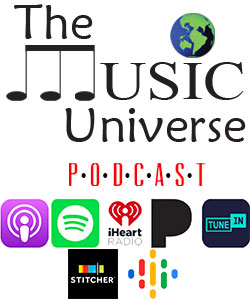There’s a growing trend of music consumption becoming more and more decentralized lately. Streaming services are now the main channel people use to listen to music and it’s been like that for a couple of years. According to IFPI’s Global Music Report, Digital Service Providers (DSPs) now account for 65% of music revenue globally.
Behind all of that, there’s an overall sense that the industry has become more democratic when it comes to introducing new artists. For once, it seemed like there were significantly less obstacles between independent artists and the audience.
But when push comes to shove, musicians have been realizing that digital distribution isn’t always what it is cracked up to be. Big record companies are still fighting for control and have a great influence to put their acts atop the charts. But even through their constant efforts, data shows a trend of decentralization that leads us to the question: is the music industry finally shifting away from the mainstream?
Truth be told, we’re still ions away from a time and place where the big players have no influence on popular music. Still, we do have some signs that a transformation may be around the corner.
Let’s take a look at a very niche and indie artist: Beyoncé. At the time of release of her 2016 album, Lemonade, the top 100 tracks on streaming platforms in the UK accounted for 10.3% of annual audio streams. Five years later, that percentage came down to 4.4%. What that tells us is that less and less people are listening to mainstream music. So, it becomes increasingly hard to make a “hit” in the traditional sense.
A lot has changed in the years since Mrs. Carter premiered Lemonade as a visual album on Tidal. At the time, TikTok was a couple months away from its release. All around the world, people were oblivious to the incoming power of a 30-second video to propel new artists or even recover forgotten bops of the past.
In the 2020’s, the music industry is now more complex than ever. With the ever-growing importance of social media, independent artists have been gaining more relevance than ever. This is a great way to gain public exposure. But having a viral moment on social media does not guarantee a profitable career. When it comes to it, some of those viral artists don’t even know how to upload songs to Spotify.
In order to address that, some companies have been taking a closer look at those artists to help with their specific needs. Platforms such as Magroove and CD Baby provide simpler paths that can make for a smoothless transition from TikTok star to recording artist. They join in on a market trend that points to the fact that, more and more, fandoms now revolve around specific tracks or genres more than the artists themselves.
Circling back to where we started, the changes in the industry have a lot to do with the main way people now listen to music: the DSPs. As the New York Times points out, they don’t offer great compensation for artists, as we all know at this point. But what they do offer is an essential place to showcase one’s artistry and build an audience. Playlists are a huge part of that. Now, instead of fighting over radio time — and failing because they can’t afford payola — indie artists have the tools to transition from a viral moment to a famous playlist alongside Beyoncé’s new lead single. And just like that, they’re also about to explode.
Buddy Iahn founded The Music Universe when he decided to juxtapose his love of web design and music. As a lifelong drummer, he decided to take a hiatus from playing music to report it. The website began as a fun project in 2013 to one of the top independent news sites. Email: [email protected]

Copyright © 2013-2022 The Music Universe. All rights reserved. Any unauthorized duplication is a violation of applicable law. This site participates in affiliate marketing.